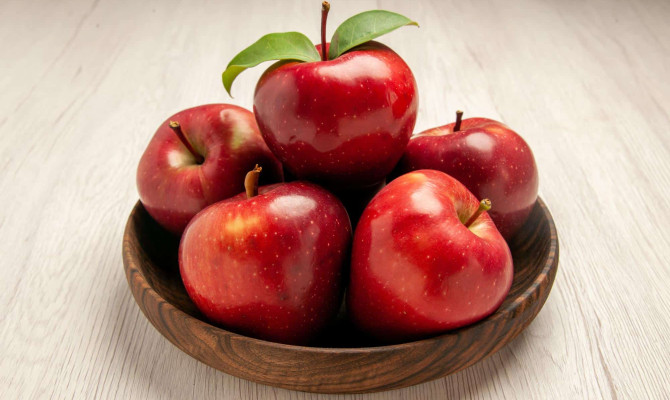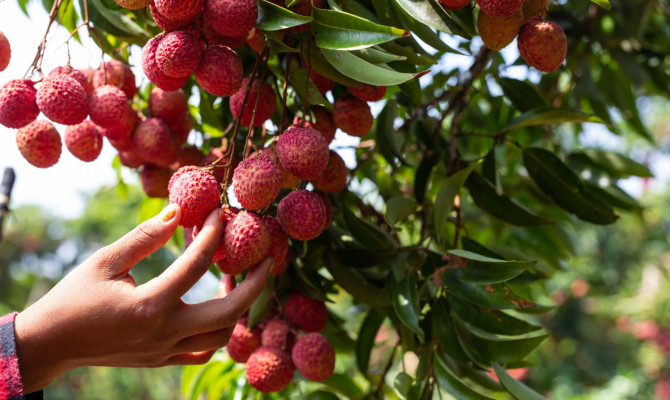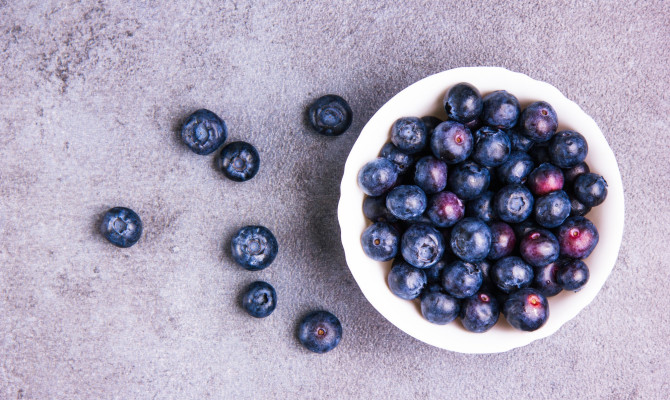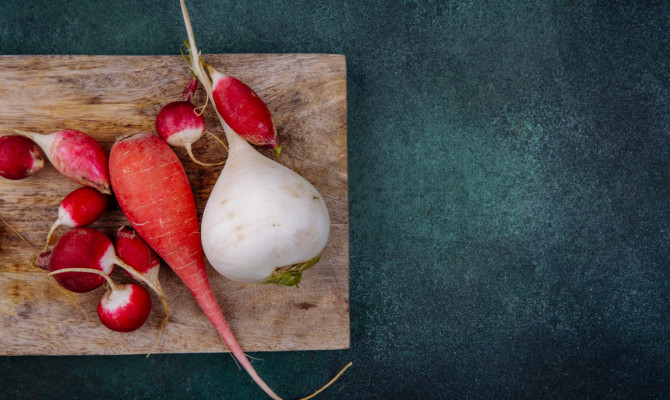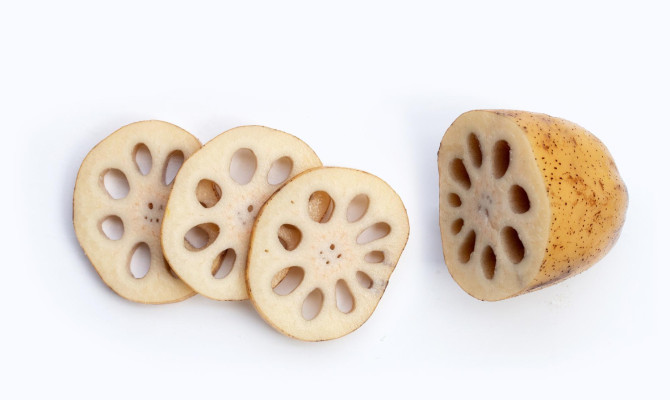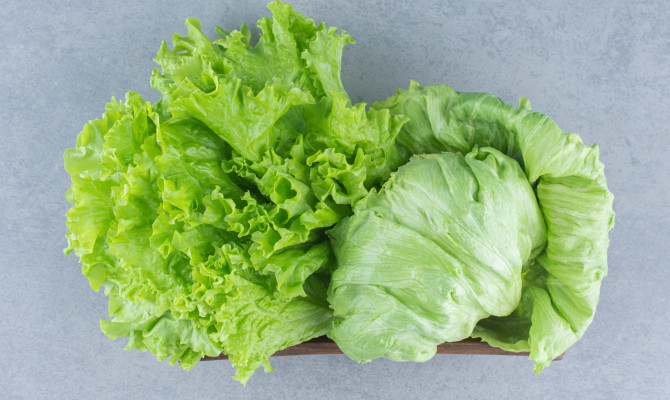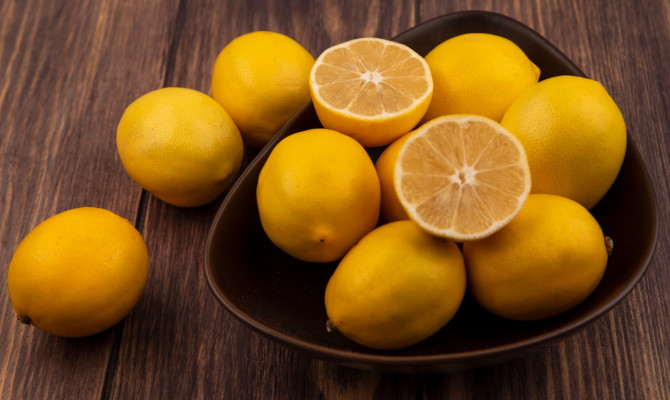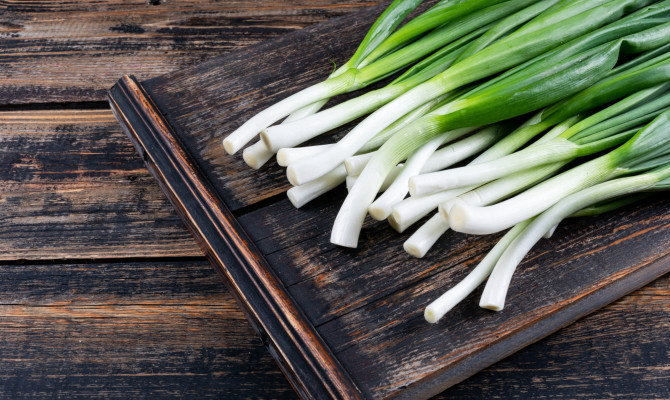Unveiling the Nutritional values and Benefits of Honeydew

- Honeydew
- 22 Aug 2023
Overview
About Honeydew
In the world of fruits, honeydew is a name that conjures up images of summertime sweetness and refreshing indulgence. The honeydew melon, whose scientific name is Cucumis melo var. inodorus, is a member of the Cucurbitaceae family, which also contains cucumbers and cantaloupes.1Overview| Researched based study from Aspca.org This wonderful fruit, which has a characteristic green peel and juicy, succulent flesh, has been cherished for centuries for both its flavor and several health advantages.
This article explores nutrition, health benefits, culinary uses, how to choose and consume them, and some side effects, precautions, and potential interactions associated with honeydew.
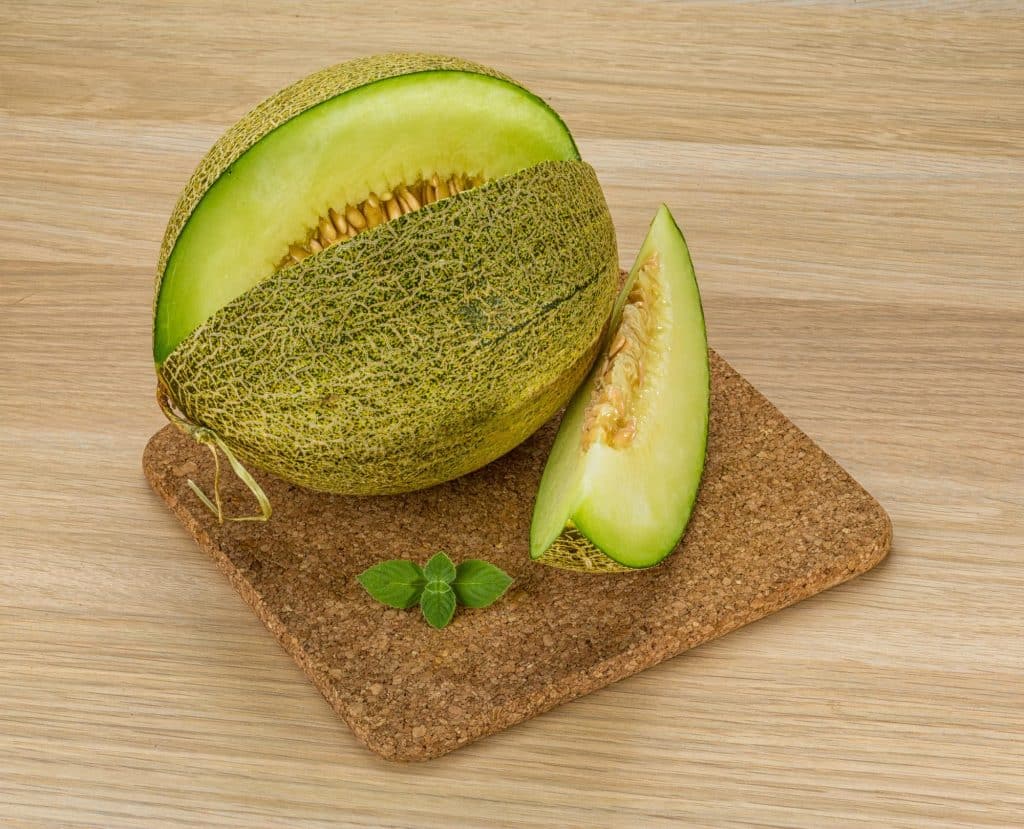
Nutrition
Nutritional Value of Honeydew
A low-calorie fruit like honeydew is a great addition to a healthy diet. A typical serving of 1 cup (170 grams) of raw, diced honeydew contains approximately:
- Water – 153 g
- Calories – 61 Kcal
- Carbohydrates – 15.5 g (5% of DV)
- Fiber – 1.36 g (5% of DV)
- Protein – 0.918 g (2% of DV)
- Fat – 0.238 g 2Nutrition| Researched based study from Usda.gov
Minerals
- Potassium – 388 mg (8% of DV)
- Sodium – 31 mg (1% of DV)
- Phosphorus – 18.7 mg (1% of DV)
- Magnesium – 17 mg (4% of DV)
- Calcium – 10.2 mg (1% of DV)
- Iron – 0.289 mg (2% of DV)
- Selenium – 1.19 µg
- Zinc – 0.153 mg
- Manganese – 0.046 mg
- Copper – 0.041mg (4% of DV)
Vitamins
- Vitamin C – 30.6 mg (34% of DV)
- Choline – 12.9 mg (2% of DV)
- Niacin – 0.711 mg (4% of DV)
- Vitamin B6 – 0.15 mg (9% of DV)
- Pantothenic acid – 0.264 mg (5% of DV)
- Thiamin – 0.065 mg (5% of DV)
- Vitamin E – 0.03 mg
- Riboflavin – 0.02 mg (2% of DV)
- Beta carotene – 51 µg
- Lutein + zeaxanthin – 45.9 µg
- Folate – 32.3 µg (8% of DV) 3Nutrition| Researched based study from Nutritionalvalue.org
- Vitamin A – 5.1 µg (1% of DV)
- Vitamin K – 4.93 µg (4% of DV)
(Note: mg – milligrams, g – grams, µg – micrograms, % Daily Value (DV) – How much of a nutrient in a plate of food contributes to a daily diet.)
Health benefits
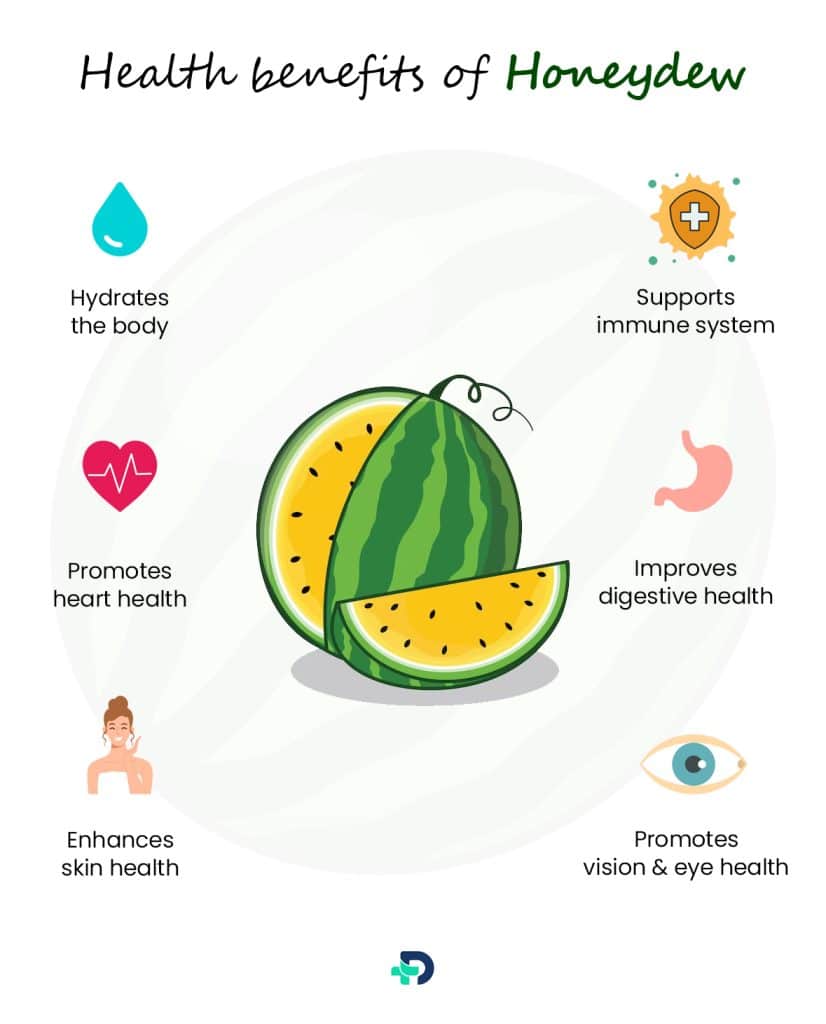
Health benefits of Honeydew
Beyond its luscious taste, honeydew offers several health benefits due to its rich nutrient content. Let’s explore some of its advantageous properties:
- Hydrates the body
- Boosts immune system
- Promotes heart health
- Improves digestive health
- Enhances skin health
- Promotes vision and eye health
Hydrates the body
- Honeydew is primarily composed of water, making it an excellent fruit for maintaining hydration levels, especially during hot summer months.2Health benefits| Researched based study from Usda.gov
Supports immune system
- As an exceptional source of vitamin C,3Health benefits| Researched based study from Nutritionalvalue.org honeydew supports a robust immune system, aids in collagen formation, and acts as an antioxidant to protect the body against harmful free radicals.4Health benefits| Researched based study from Nlm.nih.gov
Promotes heart health
- The potassium in honeydew aids in controlling blood pressure and preserving healthy heart function.5Health benefits| Researched based study from Medlineplus.gov
Improves digestive health
- With its moderate dietary fiber content, honeydew aids digestion, prevents constipation, and promotes a healthy gut.
- It is also better tolerated in individuals with specific digestive issues.6Health benefits| Researched based study from Nlm.nih.gov
Enhances skin health
- The vitamin C and antioxidants in honeydew contribute to healthy skin by promoting collagen production and protecting against skin damage.7Health benefits| Researched based study from Nlm.nih.gov
Promotes vision and eye health
- Two antioxidants, lutein, and zeaxanthin, are known to assist healthy eyes and eyesight and are found in honeydew melon.
- They also stop the progression of eyesight loss brought on by aging.8Health benefits| Researched based study from Nlm.nih.gov
Selection
How to choose them?
Selecting the perfect honeydew is essential to ensure you enjoy its delectable taste. Here are some tips for choosing and consuming honeydew :
- Exterior – Look for a honeydew melon with a smooth, unblemished, pale green rind. Avoid fruits with bruises, cuts, or mushy spots.
- Weight – Choose a melon that feels heavy for its size, indicating a juicy and ripe fruit.
- Aroma – Smell the fruit’s bloom end; a pleasant, aromatic perfume denotes ripeness.
- Texture – When gently pressed, the skin should yield slightly but not too soft.
- Storage – Store uncut honeydew at room temperature until ripe, then refrigerate. Once it has been cut, it can be kept chilled for up to two weeks in an airtight container.9Selection| Researched based study from Uada.edu
Culinary uses
Culinary uses of Honeydew
A versatile fruit, honeydew can be used to make a variety of dishes. Here are some delightful ways to savor honeydew:
- Fresh and Raw – Honeydew is best enjoyed fresh and raw. Enjoy the fruit’s inherent sweetness by cutting it into bite-sized pieces.10Culinary uses| Researched based study from Fruitsandveggies.org
- Fruit Salads – It makes an excellent addition to fruit salads, adding a refreshing touch and complementing other fruits like strawberries, blueberries, and mint leaves.
- Smoothies – Blend honeydew chunks with yogurt or other fruits to create a delightful and healthy smoothie.
- Sorbet – Freeze honeydew pieces and blend them into a smooth sorbet for a guilt-free dessert.
- Mocktails/ Cocktails – Honeydew can also be muddled or blended into mocktails or cocktails, adding a subtle sweetness and refreshing twist.
Vs. Cantaloupe
Honeydew vs. Cantaloupe
Cantaloupes and honeydew melons are two common varieties of melons; however, they differ in specific ways.
The main variations between cantaloupes and honeydew melons are as follows:
- Appearance – When ripe, honeydews have a smooth surface with a rind that ranges from light green to light yellow, but cantaloupes have an outer rind that is rough, netted, or webbed. Its skin might be green, tan, or beige.
- Taste – The flavor of honeydew melons is light and sweet; it’s frequently called pleasant and delicate. On the other hand, Cantaloupes have a richer, more prominent sweetness with a characteristic musky flavor, which is why they’re also known as muskmelons.9Vs cantaloupe| Researched based study from Uada.edu
- Texture – When mature, the honeydew melon’s flesh has a smooth and creamy texture. In contrast to honeydew’s smoothness, cantaloupe flesh is frequently more rigid and textured.
- Nutrition – Cantaloupes and honeydew melons are both low in calories and high in dietary fiber, vitamin C, and other essential vitamins and minerals like vitamin A, potassium, and magnesium.
Precautions
Precautions
While honeydew is generally safe for most people, here are some precautions to consider:
- Allergic Reactions – If you have a known allergy to other melons or fruits, be cautious when trying honeydew, as cross-reactivity can occur.
- FODMAPs – even though honeydew contains fewer FODMAPs (Fermentable Oligo-, Di-, Mono-saccharides, and Polyols),11Precautions| Researched based study from dietvsdisease.org some individuals with irritable bowel syndrome (IBS) or a sensitive gut may experience digestive discomfort, especially after consuming it in large amounts.
- Moderation – While honeydew is a nutritious fruit, consuming it excessively may contribute to an imbalanced diet, especially if it replaces other essential food groups.
- Pesticide Residue – As with any produce, it is advisable to wash the honeydew thoroughly to reduce the risk of consuming pesticide residues.
Takeaway
Takeaway
With its delightful taste and impressive nutritional profile, honeydew is genuinely a gift from nature. This delicious fruit has several health benefits, including those for the immune system, hydration, digestion, and skin. Remember to select ripe honeydew, savor it fresh or in various culinary creations, and relish its numerous health benefits. As with any food, enjoy honeydew in moderation, and if you have any underlying health concerns, consult your healthcare provider to ensure its compatibility with your diet and medications. Embrace this sweet and nutritious delight and let the honeydew add a touch of freshness and vitality to your daily life.
Any feedback on this article?
 This Articles content was accurate
This Articles content was accurate Very Informative Article
Very Informative Article I have a question or a comment
I have a question or a comment
 This article contains inaccurate content
This article contains inaccurate content This article was not helpful
This article was not helpful I have a question or a comment
I have a question or a comment
We appreciate your helpful feedback!
Checkout our social pages
References
-
American Society for the Prevention of Cruelty to Animals
Honeydew Melon | Overview
-
U.S. DEPARTMENT OF AGRICULTURE
Melons, honeydew, raw | Nutrition
-
NutritionValue
Melons, raw, honeydew | Nutrition
-
National Library of Medicine
Vitamin C and Immune Function | Health benefits
-
Medline Plus
Can potassium help your heart? | Health benefits
-
National Library of Medicine
The Health Benefits of Dietary Fibre | Health benefits
-
National Library of Medicine
The Roles of Vitamin C in Skin Health | Health benefits
-
National Library of Medicine
Fruits and vegetables that are sources for lutein and zeaxanthin: the macular pigment in human eyes | Health Benefits
-
University Of Arkansas Division Of Agriculture
What's the Difference Between Cantaloupe and Honeydew Melon | Selection
-
Produce for Better Health
Top 10 Ways to Enjoy Honeydew Melon | Culinary uses
-
Diet vs Disease
Low FODMAP Fruits: A List of What You Can and Cannot Eat | Precautions












